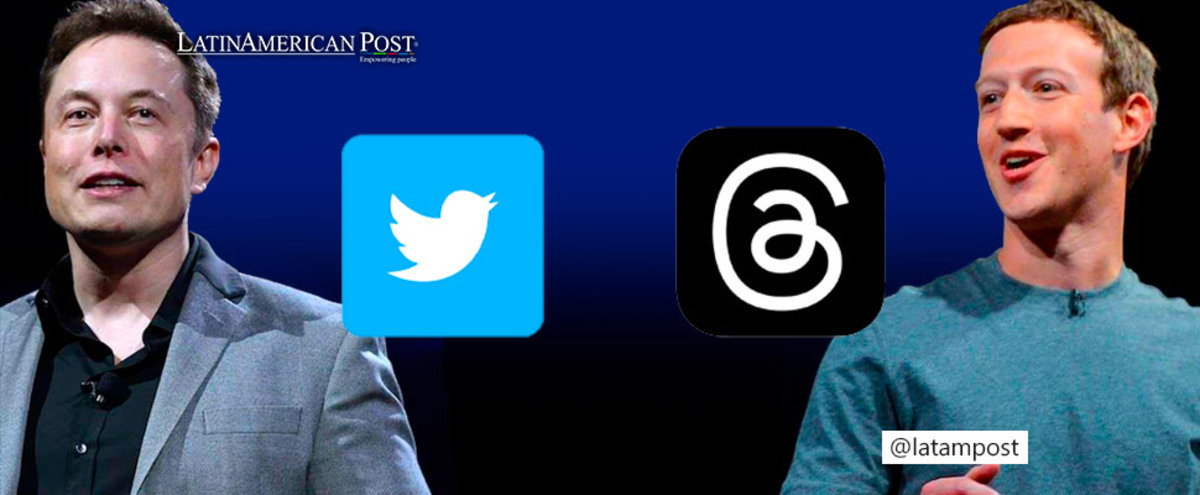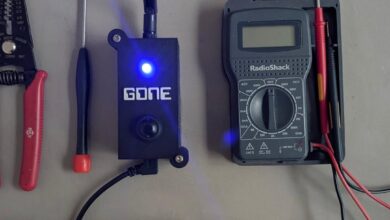Threads vs. Twitter: Will Zuckerberg’s Strategy to Beat Musk Work?
Mark Zuckerberg is going after the microblogging market led by Twitter, which is in a time of change and uncertainty. This is Threads.

Photo: Elon Musk, Mark Zuckerberg
LatinAmerican Post | Luis Angel Hernández Liborio
Escucha este artículo
Leer en español: Threads vs. Twitter: ¿Funcionará la estrategia de Zuckerberg para vencer a Musk?
Threads, Meta’s new app to compete with Twitter, has arrived. In a highly competitive environment in social networks, these two applications will compete for the throne of microblogging. This is not a minor battle, as behind it are two personalities from the technology sector: Mark Zuckerberg and Elon Musk, who are both betting on conquering the market.
What is Threads?
It is an app developed by Meta, which owns Whatsapp, Facebook, and Instagram, designed to compete with Twitter. It is linked explicitly to Instagram; users can migrate their data, followers, and preferences to the new application. Initially, it would be new functions within Instagram, but Meta went for a standalone app but, at the same time, part of its ecosystem. It plans to have the same functions as its competitors, posting texts, images, liking, messaging, creating threads, etc. So it could quickly capture users of Meta’s other apps by integrating directly with them, unlike Twitter. However, Elon Musk’s company will not let that happen easily. In its favor, it has users accustomed to its use and the socio-cultural importance of the social network that has been present in global events of all kinds: awards ceremonies, wars, earthquakes, pandemics, economic crises, social outbursts, elections, etc. The question is whether Threads will be able to achieve such social penetration.
The Moment for Zuckerberg
In its favor, Threads has something important: Twitter is in the hands of a new owner, the South African billionaire Elon Musk, who, since he arrived at the company, has pushed through substantial and, in some cases, radical changes that users are not happy about. Among these changes are mainly the charge for account verification and the limitations on accessing content per day. Twitter’s business model has not been clearly defined, nor is it clear whether it will be successful, but this represents a unique opportunity for Threads. As unlikely as it may seem, the business competition could move into the MMA octagon, with both entrepreneurs commenting on the possibility of a physical confrontation in the context of a UFC-organised fight. While not a done deal yet, the reality is that it is a clear allegory for the competition between the two empires.
You can also read: 7 Tips for the Pocket when the Dollar Falls in Price
The Numbers
Elon Musk has been a shareholder in Twitter for some time. Still, following his “negative” experience as a user, he decided to acquire the social network to subject it to the profound changes he considered necessary to make it “free.” The eventful purchase was closed at $44 billion, but only with threats of leaving the table due to disagreements with shareholders, a fall in the value of the shares, and the generation of uncertainty for advertisers and users. And beyond the fights and competition for users that it will have with Thread, the bottom line is the business battle.
Twitter’s numbers could represent the value of the microblogging market and social media, as of January 2023, Musk’s network had 556 million monthly active users (up from 1.3 billion registered), according to Statista data. However, it lags behind Facebook (2958 million monthly users), Instagram, and Whatsapp (2000 million each) and represents barely half the users of the Chinese social network TikTok (1051). Twitter’s market value is based on users’ familiarity with it, which is why Threads is betting on a similar interface to ease the transition for the user. Not surprisingly, the market value of social networks in 2022 was 223 billion dollars, according to Yahoo Finance, equivalent to the GDP of Peru, and is projected to reach a value of 833 billion dollars by 2026.
This is one of the fastest-growing sectors still in the pandemic, generating record numbers of users and content generation. In addition to advertising revenue and online purchases linked to the business model of various social networks, including Twitter.
What will Really Define the “Winner”
Despite the economic and social scenarios, what could define the “winner” of the race is the user experience. Elon Musk acquired Twitter to make it more “free” in the face of what he considered censorship. The proliferation of fake news and accounts and the social network’s limitations made users such as former president Donald Trump uncomfortable, and the company permanently canceled his account in 2021 because it incited violence. The company should have counteracted the influence of fake news, hate speech, and adult content, even with the arrival of Musk.
On the other hand, Threads’ offering may be no different. The controls that Meta has on Instagram and Facebook are also uncomfortable for users affected by the content limitations of both platforms, to which Threads will be no stranger. The network that genuinely offers that “freedom” to the user could be the one to take the throne. If Threads does not guarantee this or becomes more restrictive than Twitter, getting users to migrate by the millions will be tricky, even if it is integrated into the Meta ecosystem. Finally, Meta’s security flaws and use of user data could be an obstacle to gaining ground on its rival.





